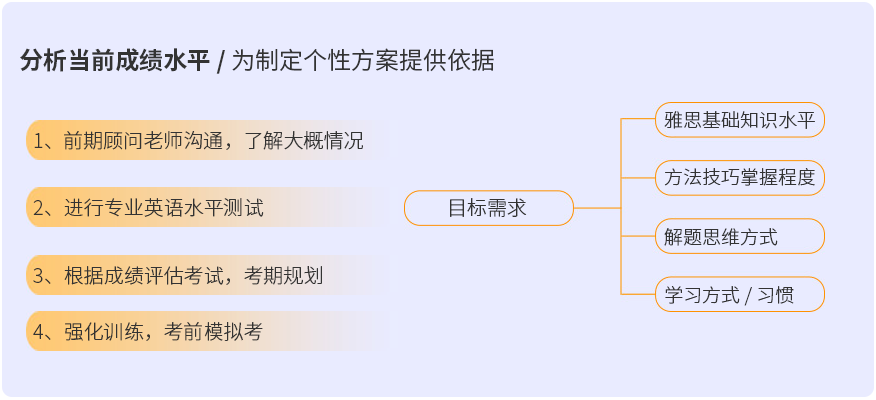
400-006-9076/QQ微信同步:924835737
400-006-9076/QQ微信同步:924835737
| 班级类型 | 适合人群 | 教学目标 | 目标水平 |
| 雅思基础强化班 | 词汇量 < 2000/词汇量2000-2500/词汇量3000 | 掌握雅思考试相关知识/考点/各项能力要求 | 达到基础水平,为理想成绩打好基础 |
| 雅思5.5分强化班 | 雅思真考或者模考在4-4.5分左右的学生 | 熟悉雅思考试,掌握基础题目的答题技巧 | 达到雅思5.5分水平,掌握英语运用能力 |
| 雅思6-6.5分晋级班 | 雅思真考或者模考在5-5.5分左右的学生 | 熟悉运用技巧,稳定拿到基础题目的分数 | 达到雅思6.5分水平,冲击中高难度题目 |
| 雅思7分冲刺班 | 雅思真考或者模考成绩在6-6.5分的学生 | 教学目标重点攻克难题,查漏补缺 | 达到雅思7+水平 |
| 雅思单项强化班 | 雅思四个单项中有相对比较薄弱的学生 | 听力、阅读、口语、写作,单项定制化课程 | 加强雅思单项语言能力 |
| 新通雅思VIP班 | 有个性化定制需求的学生 | 根据个人情况定制课程方案 | 达到个性化需求目标 |

你的学习目标是?
你的目标分数是?
你的英语基础是是?
你的学习时间是?
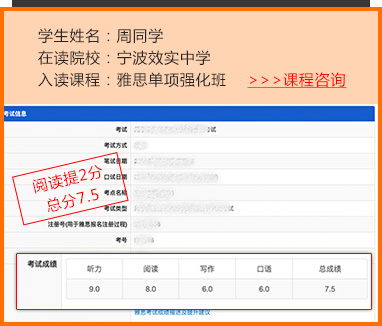
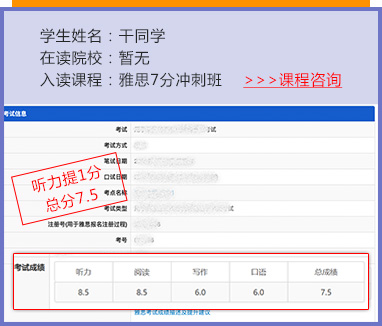
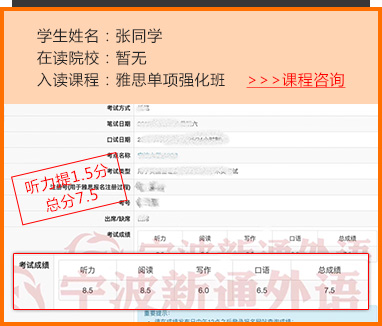


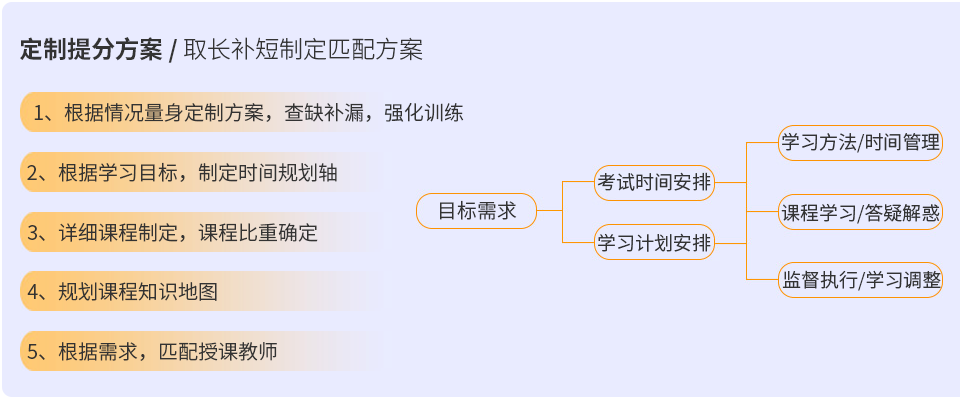
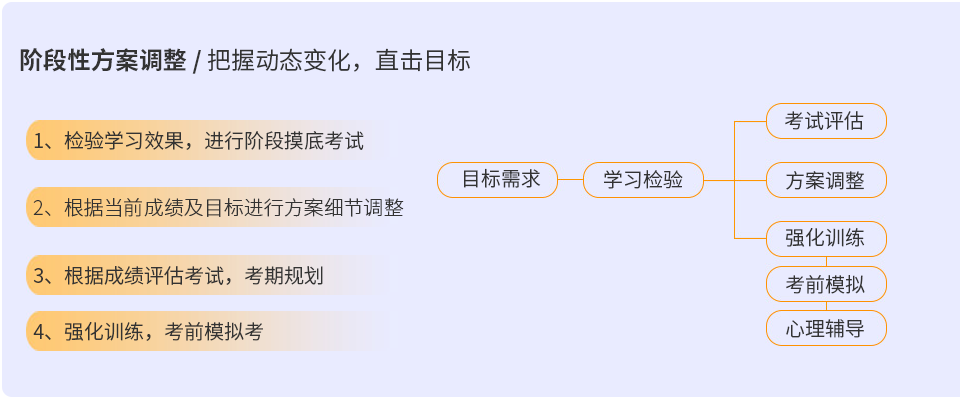
根据目标、自身情况细化,
备考计划制定备考方案
全方位分析失分项,根据实际
情况,量身定制课程
多位教师
互动练习,重点辅导
学习督导、班主任
全天跟进学习效果


| 24小时课后答疑 | 随时为学生解答疑惑,附详细分析案例 |
| 作业检查与批改 | 对学员的每一次的作业进行详细批改并点评反馈,学员不及格或不符合要求的需要重新修改并提交老师批改 |
| 定期测试 | 针对个人制定测试计划,定期检测学习成绩并实时反馈,与学生分析得失点,调整学习策略/方法 |
| 微信学习小组 | 通过学习小组解答疑惑难点、实时分享考试资讯动态、及时信息沟通等 |
| 预习与复习任务 | 提前布置预习任务,标注重点难点,复习情况检查,帮助知识巩固 |
| 学习情况反馈 | 将学员学习情况、学习表现反馈给家长,并与家长保持沟通,帮助学员调整状态,提高成绩 |
| 单词抽测 | 针对高频易考词汇/易错单词进行统一抽测,并进行系统化梳理 |
| 晚自习监督 | 针对学生晚自习进行督促,随时解答疑惑,沟通方法技巧,帮助学生养成良好学习习惯 |
平均教龄> 5年教师执教
全程跟进监督,使学员冲刺
制定基础,强化,冲刺三个阶段,
针对不同分数段,逐个击破,衔接
自1996年创立扎根雅思培训行业
23年来见证万千学子成功蜕变
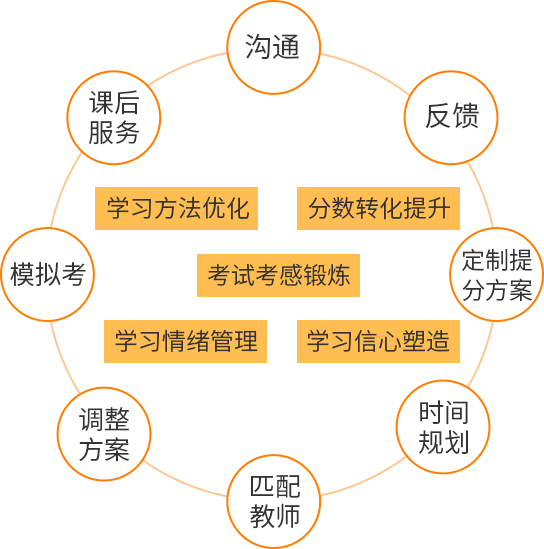
 面授
面授
 网课
网课
 集训班
集训班
 大班
大班
 小班
小班
 VIP班
VIP班
 全日班
全日班
 晚班
晚班
 周末班
周末班

QQ咨询:924835737
微 信 号:924835737
电话咨询:4000069076









